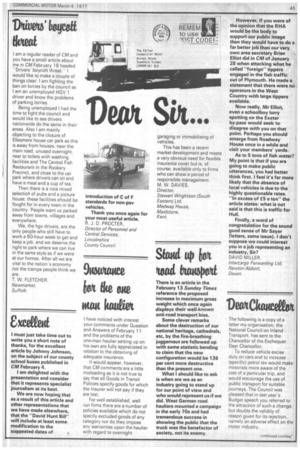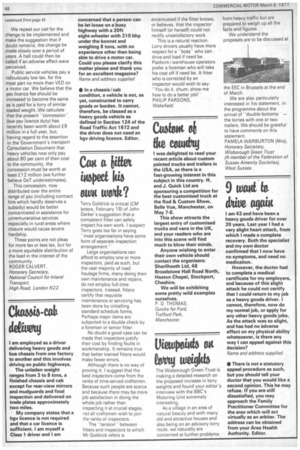Deetektuiceibt
Page 51

Page 52

If you've noticed an error in this article please click here to report it so we can fix it.
The following is a copy of a letter my organisation, the National Council on Inland Transport, has sent to the Chancellor of the Exchequer. Dear Chancellor: To reduce vehicle excise duty on cars and to increase (specific) petrol tax would make motorists more aware of the cost of a particular trip, and would encourage the use of public transport for suitable journeys. The Council was pleased that in last year's Budget speech you referred to the attraction of such a change, but doubts the validity of reason given for its rejection, namely an adverse effect on the motor industry. We repeat our call for the change to be implemented and make the suggestion that if doubt remains, the change be made slowly over a period of years. A halt could then be called if an adverse effect were perceived.
Public service vehicles pay a ridiculously low tax, for the most part no more than VED on a motor car. We believe that the psv licence fee should be increased to become the same as is paid for a lorry of similar loaded weight. We calculate that the present "concession" (low psv licence duty) has recently been worth about £9 million in a full year, but, having regard to the assertion in the Government's transport Consultation Document that heavy vehicles now only pay about 80 per cent of their cost to the community, the concession must be worth at least £12 million (we further believe DoT underestimates).
This concession, now distributed over the entire range of psv (including contract hire which hardly deserves a subsidy) would be better concentrated in assistance for unremunerative services especially in rural areas where closure would cause severe hardship.
These points are not pleas for more tax or less tax, but for a more equitable distribution of the load in the interest of the community.
ROGER CALVERT, Honorary Secretary, National Council for inland Transport, High Road, London N22.


























































































































































